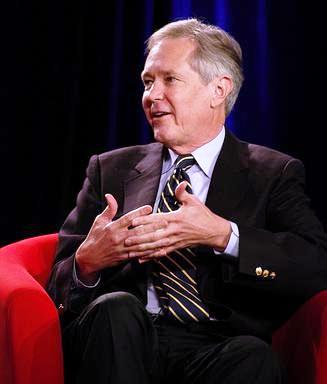Q&A with The Atlantic's James Fallows, Author of 'China Airborne'

James Fallows's new book is China Airborne. It delves into Chinese life and politics, the national character and the related aspirations--with the aviation industry exemplifying the massive transformations now happening.Q. What neighborhood in Beijing would be closest to Georgetown in various ways, such as political influence and the quality of the cuisine? Or is such a comparison impossible to make? A. You could make the comparison much more easily with Shanghai than with Beijing—and in Shanghai, you’d say it was the "French Concession." This is the area featured in movies like “Empire of the Sun,” where European and American colonialists lived elegant lives in pre-World War II, pre-Communist China, while Chinese Shanghai was largely a scene of misery. Their old European-style mansions, clubs, and apartment buildings keep getting knocked down, but enough of them remain to give Shanghai a unique feel in China. Beijing’s city planners are busily knocking down the historic courtyard houses known as “hutongs” as quickly as possible. The city is being rebuilt overnight on a model that combines the scale and excess of Moscow, Houston, and LA.Q. You grew up in California. What are the similarities and differences between the old California optimism and the Chinese economic variety—the can-do-ism about which you write in China Airborne? A. An interesting comparison, which I hadn’t thought of in just that way. The main similarity would be the sense that overall, conditions in the country had gotten a lot better over the past generation-plus. In my Beach Boy-era California childhood, it was my parents’ generation who talked about the Depression and going off to war. We were the kids being educated in the new schools, as our parents moved to new houses, and we played in new parks and drove on new roads. That’s pretty much the sense in China now—people have only to look back a few decades to see a real nightmare period for the country. There’s a similar wacky/plucky optimism among many Chinese entrepreneurs now, including the ones I describe in my book. But consistent with the principle that everything happens faster in China, they may also be in danger of this whole mood souring—that’s what all the scandal revelations, plus inflation, plus a polarized economy can do.Q. Washington’s tax policies and other actions have squeezed the middle class and the poor in recent decades. Long term, beyond the current tax debates, what are the chances of a reversal of this legalized kleptocracy, and what will it take for this to happen—both politically and in other ways? A. If I had a good answer to that question, then I would indeed be the political-economic wise man that you and I have searched for over the decades in American public life. My main source of solace is that we have been in versions of this same predicament several times before. As you well know, the history of the 19th century Gilded Age is surprisingly similar to the patterns and strains we are enduring in the early 21st century Gilded Age. And of course it led, through turmoil, to both the Populist and the Progressive eras, which righted some of the balance. As I wrote someplace, maybe even in this book, America is always getting itself into terrible trouble, and at the last possible moment finding ways to escape. I hope we are about to see another installment of the recovery part of that cycle.
The full Q&A, covering more topics, is at Solomon Scandals.
